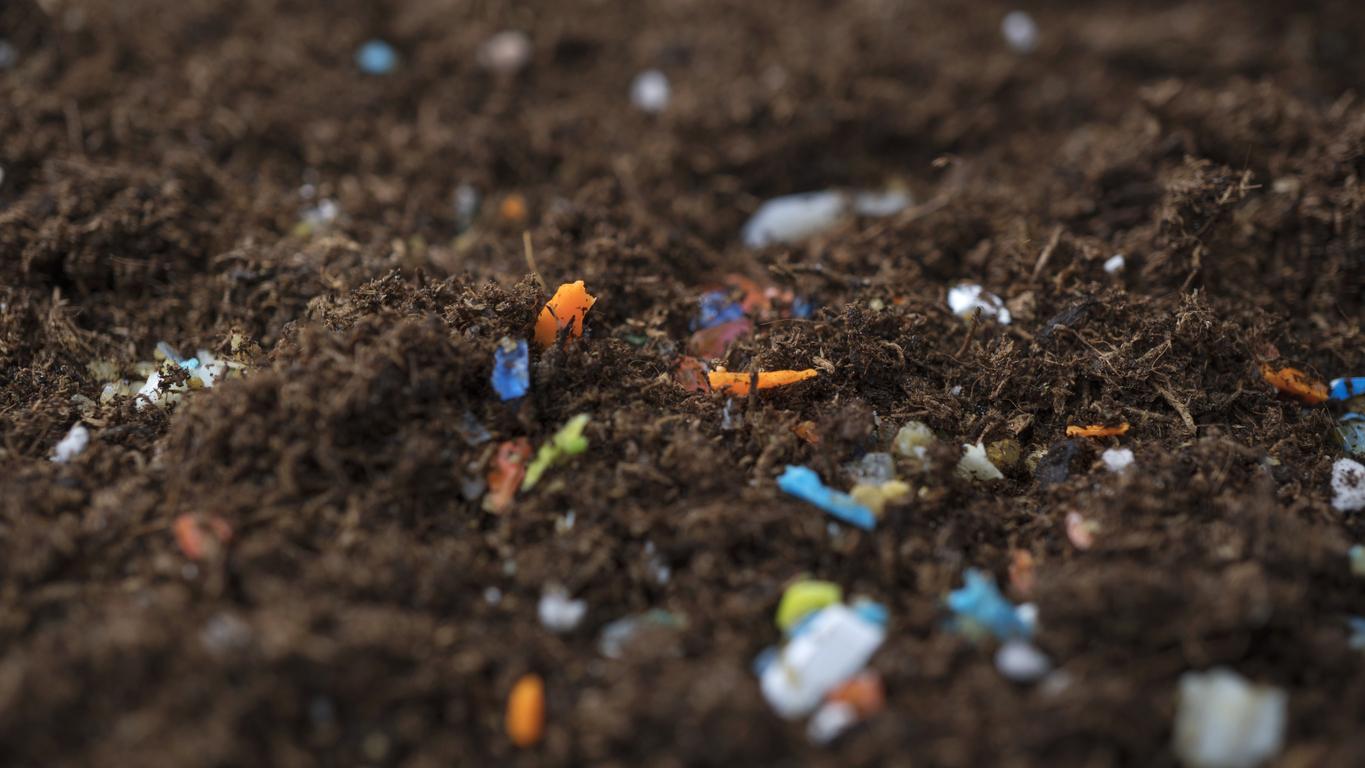The shock video shot in a pig farm in Brittany raises questions about the health control of these farms.

Gag my heart at these images. Pigs cohabiting with the carcasses of rotting congeners. “Thin, wounded, sick, even dying animals” in a Breton farm in obvious decline, as evidenced by the presence of pig bones. The new “shock video” published by the association L214 and the newspaper The world is enough to ruffle the hair, whether you are a defender of animal rights or a simple pork consumer. The more so as the veterinarian questioned by the daily evokes a “maximum risk” of transmission of pathologies, with a danger for the breeding as for the human one.
Trichina
In fact, these fears are well founded. The presence of carcasses in a farm is an alarming health situation, explains Ludovic Lecarpentier, veterinarian and member of the Regional Council of the Order of Veterinarians of Brittany. “There is a risk with trichina, linked to the consumption by live pigs of dead meat. At that time, a parasitic cycle can develop ”, with, in fine, a risk of contamination for consumers.
To assess and limit the risk of trichinosis, the authorities have imposed a mandatory health inspection in pig farms and slaughterhouses. Started in 2015, the campaign is slowly taking shape. By mid-July 2016, only half of pig farmers had carried out these checks, carried out by the farm’s health veterinarian. The campaign was extended until December 31, 2017, in order to inspect all 15,465 breeding sites.
“The breeders have every interest in coming forward, because if their pigs are not checked, they lose their recognition, which implies a multiplication of tests at the time of slaughter”, specifies Ludovic Lecarpentier.
Ludovic Lecarpentier, veterinarian, member of the Order of Brittany: “Animals that die in farms, it happens, but there are procedures …”
Personal disturbances at the origin of the abuses
Since 2009, an H1N1 influenza surveillance system has been deployed, first in Brittany, then in the rest of France. Apart from these controls, pig farms have been inspected every year, but only since 2015. Like the beef industry since 2005, health inspections of pig farms have therefore very recently become compulsory. “In fact, there are strong safeguards, but it’s true, if a breeder ‘goes crazy’ he can temporarily fall through the cracks.”
Thus, according to this veterinarian, cases of sanitary drifts such as that of Breton breeding filmed by L214 remain very marginal. “I have been working in pork since 1993 and this has only happened to me twice. Each time, these cases were linked to personal situations of the breeder, to mental disorders, alcoholism, a deleterious socio-economic situation. You don’t abandon your animals like that, without having a problem ”.
The “classic case” depicted by the veterinarian is that of the son who takes over the father’s farm without having the skills or the inclination. The first years are good, carried by the inherited production, but bad practices can set in and generate a gradual loss of yields. “The breeder has no more money to buy food; his animals die, he isolates himself, plunges into a kind of lethargy, refuses any outside intervention, no longer calls the vet … In my case, it is the technician who warned me. The operators have ceased their activity ”.
Ludovic Lecarpentier : ” This is a situation that we saw 20 years ago, because the breeders were not specialized, it was easy to start a farm. Today, breeders are managers “
System “efficient” but perfectible
But how can we explain that Breton breeding, associated with a major cooperative in the region, could have fallen through the cracks? “A pig farm can take only a few weeks to fall into disrepair,” explains Ludovic Lecarpentier. In addition, the compulsory controls being very recent, one can imagine that some farms have not yet received a health inspection.
For this veterinarian, the situation of Breton breeding, far from being systematic, refers to an efficient system but “which has its flaws, like any system. You are flying and your trip will be safe; but unfortunately, one day, a pilot decides to rush all his passengers onto a mountain ”.
A system that can probably be improved, despite everything. According to a report from the Ministry of Agriculture dated May 2016, health training for breeders remains incomplete. “Although breeders are better and better trained, their training was deemed insufficient on the health side by themselves, by their professional representations and by veterinarians. This comment applies to all sectors ”, we can read.
Information seekers
However, these same operators seem to seek information. The report underlines that “breeders cite insufficient appropriation (by the younger generations among others) of the usefulness of prophylaxis, of the use of health qualifications, of health documents, of the concept of an emergency plan and of surveillance plan for certain animal diseases ”.
For Ludovic Lecarpentier, the overwhelming majority of breeders care about the health of their animals, if not at least for economic reasons. The reduction in the use of antibiotics in farms has also prompted farmers to seek other means of ensuring animal health safety. “They call us because they want to be efficient, which means better biosecurity and increased animal welfare”.
.















